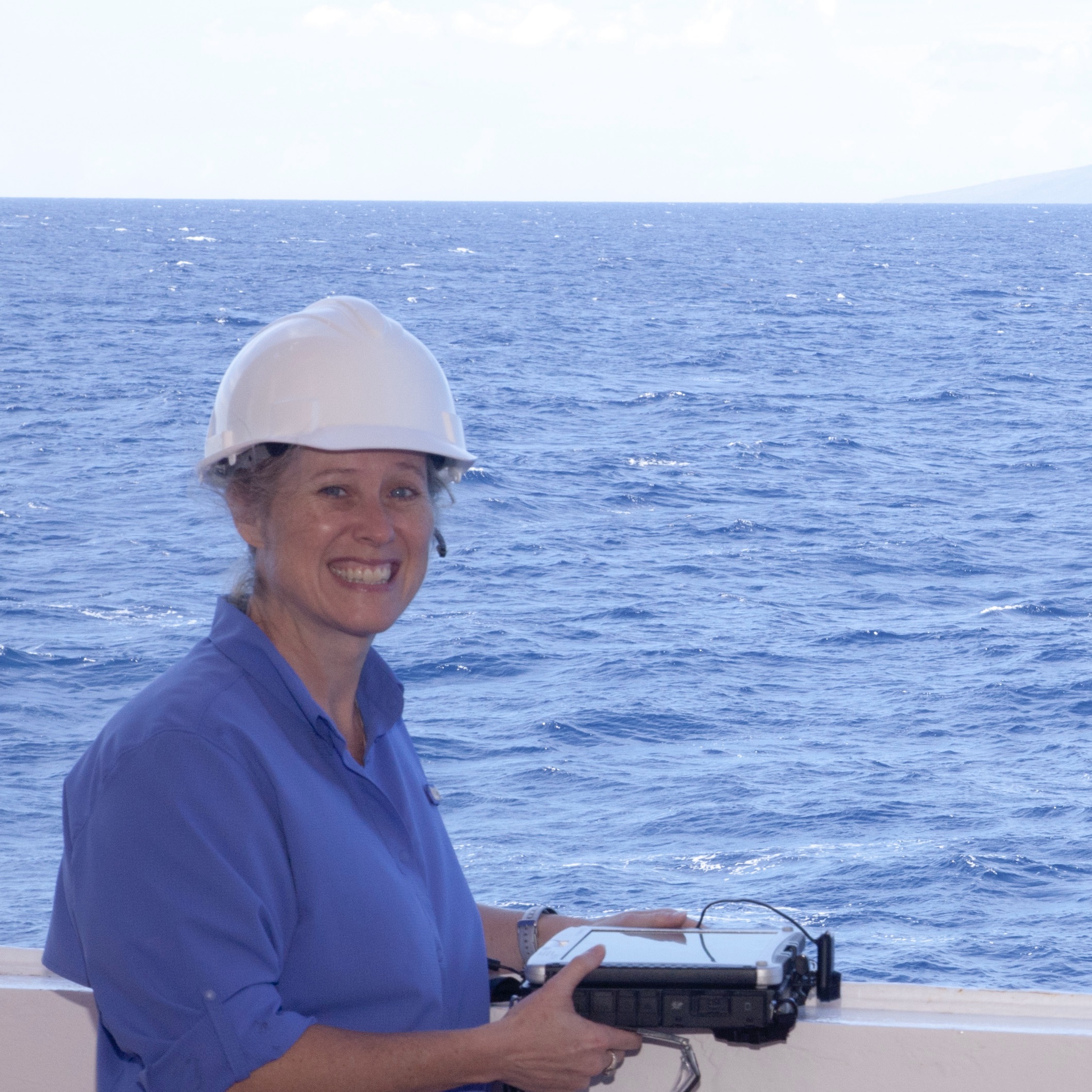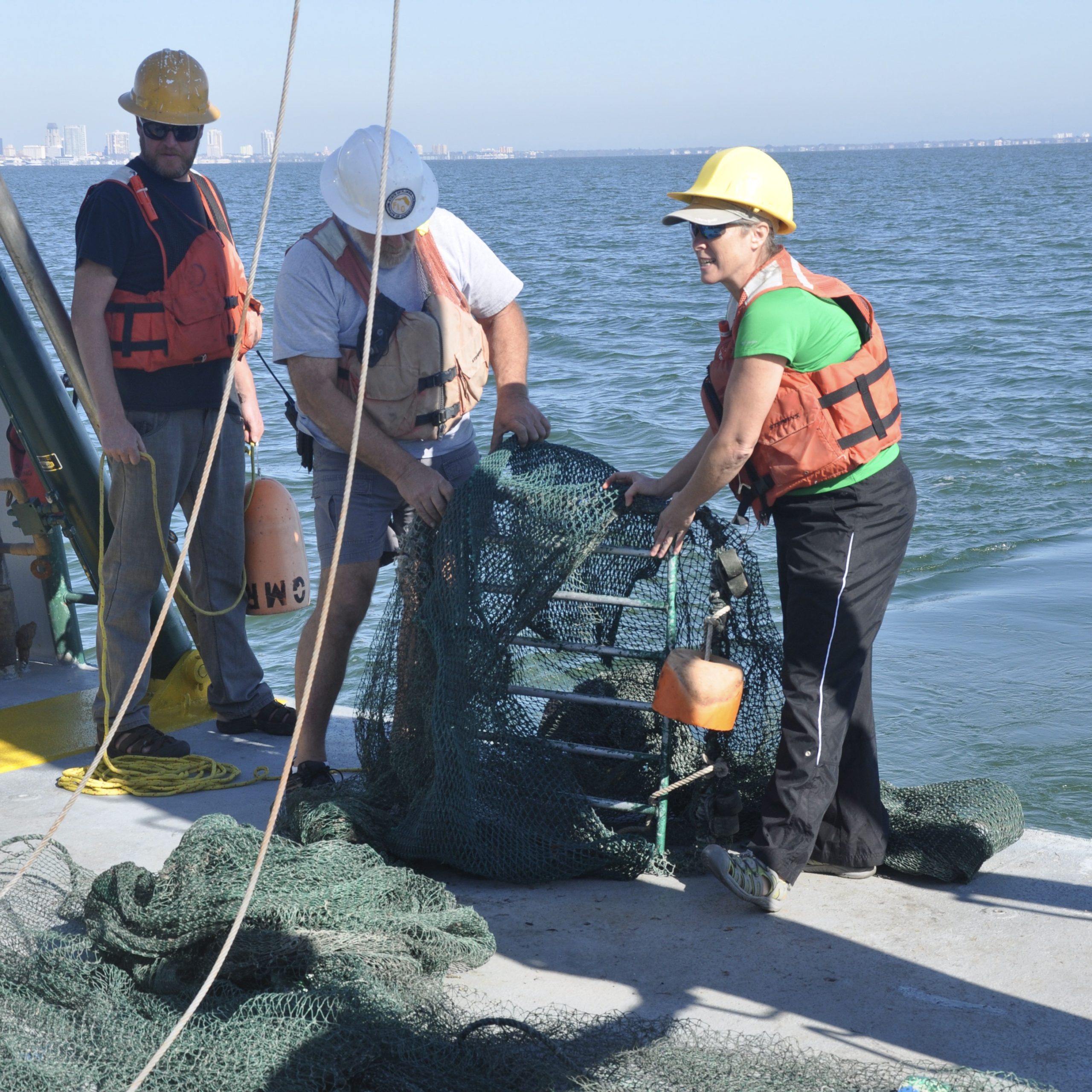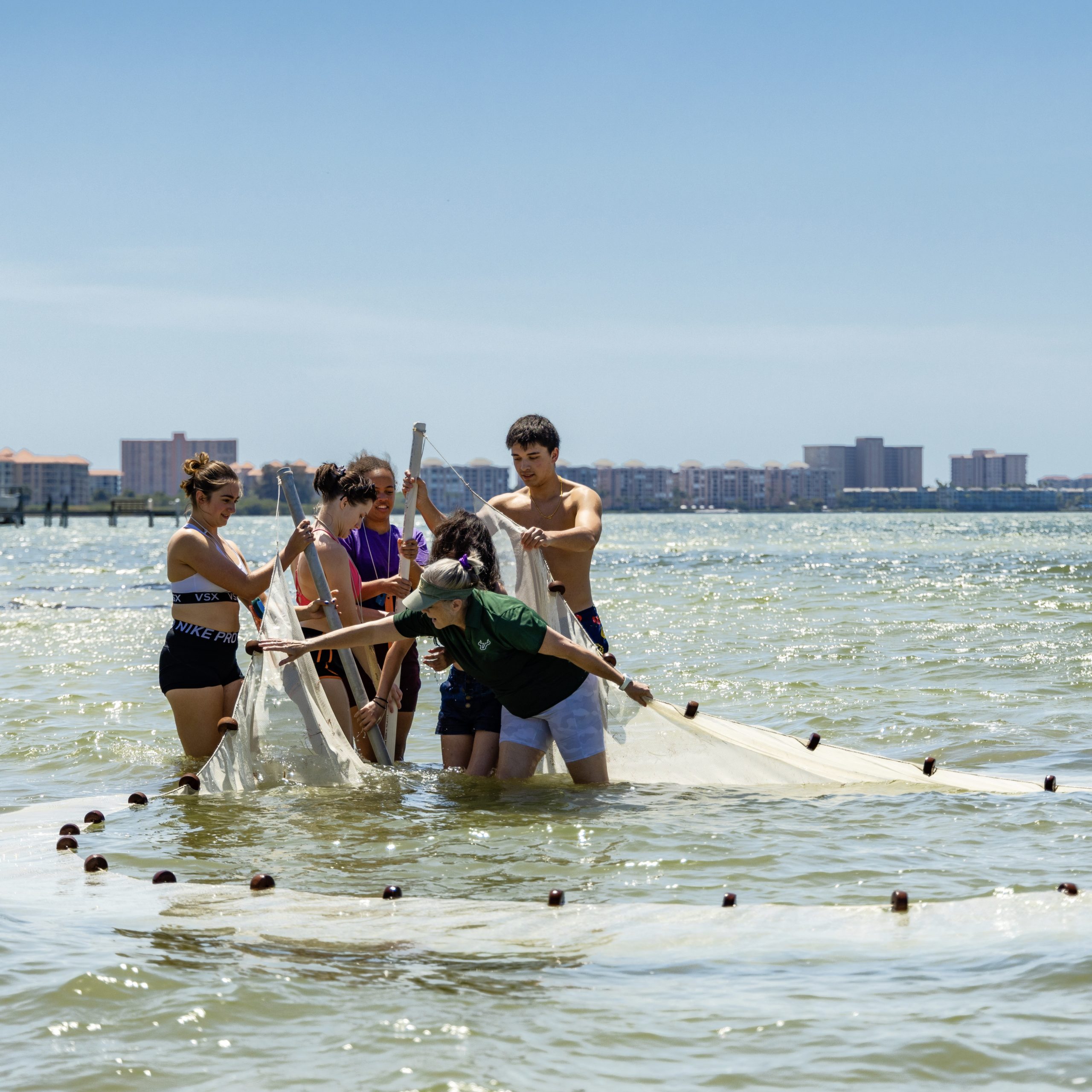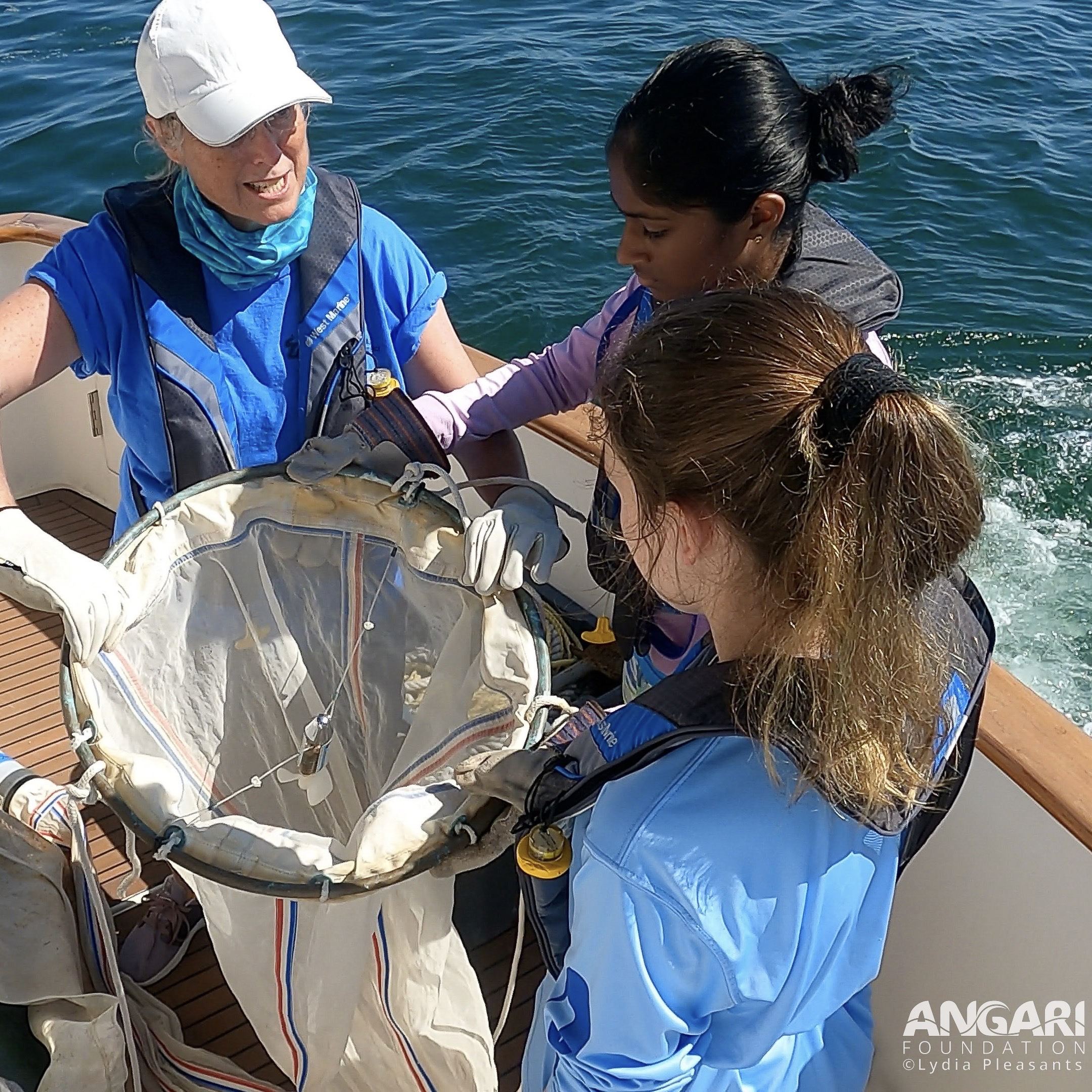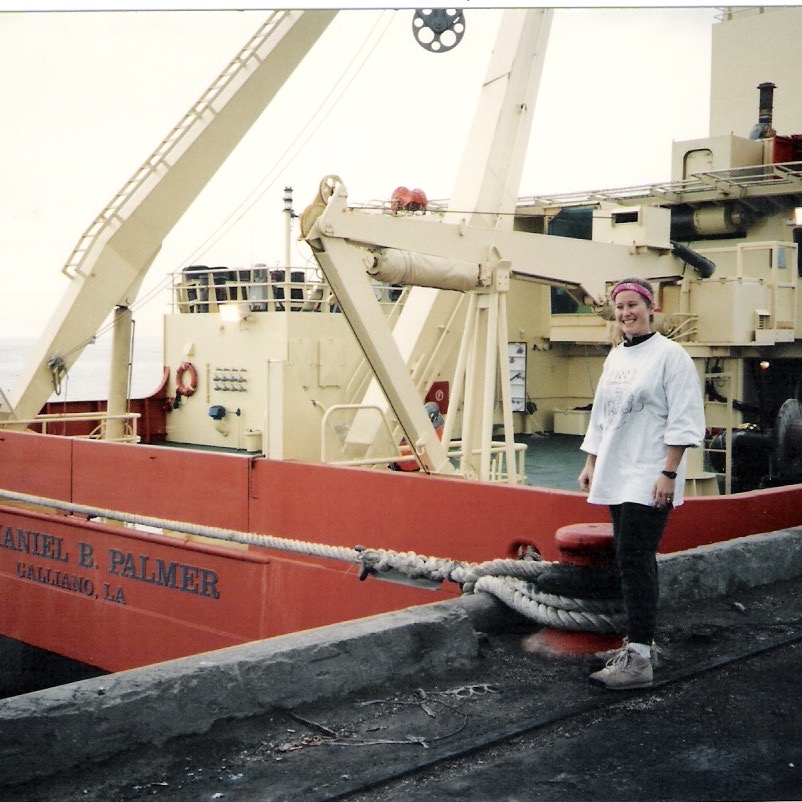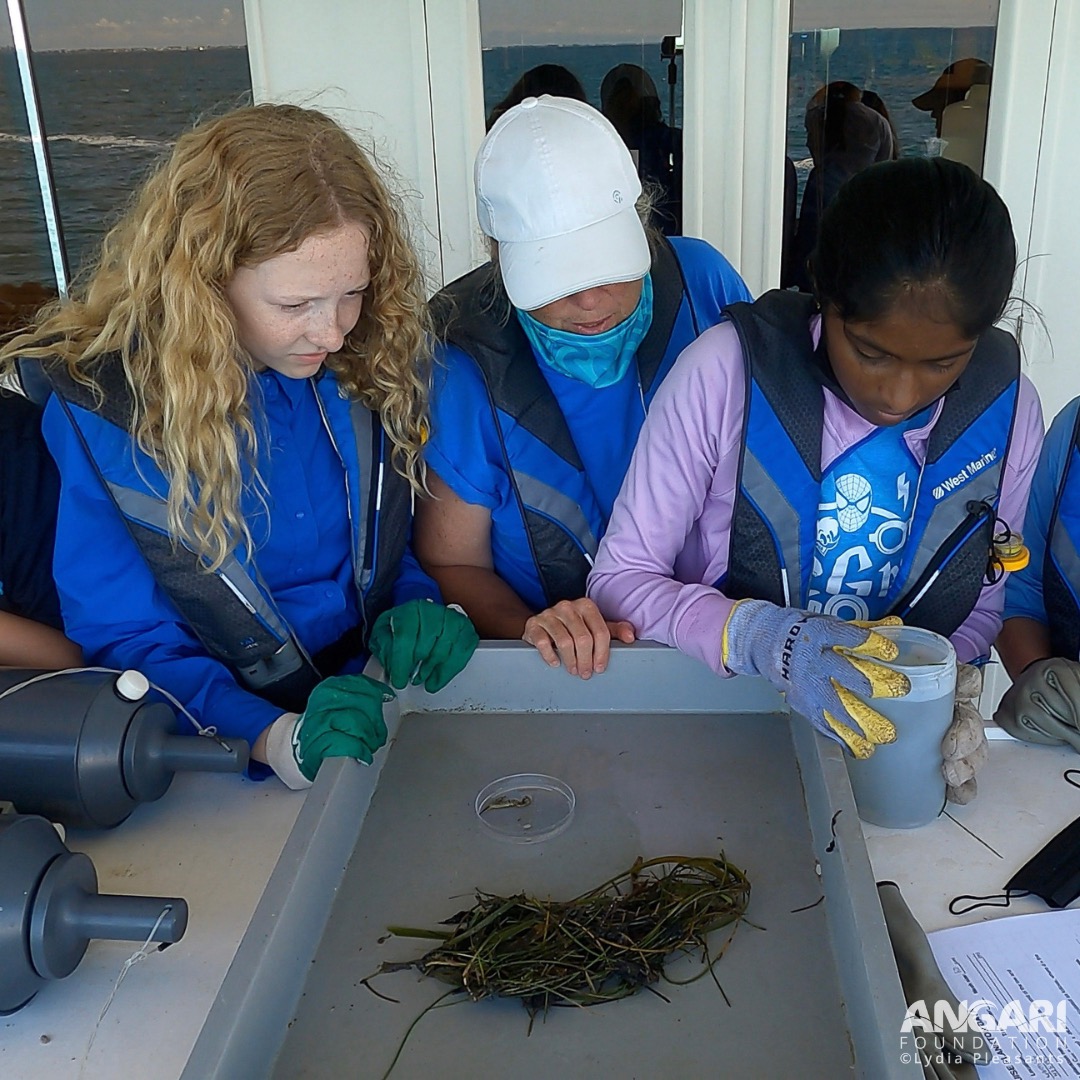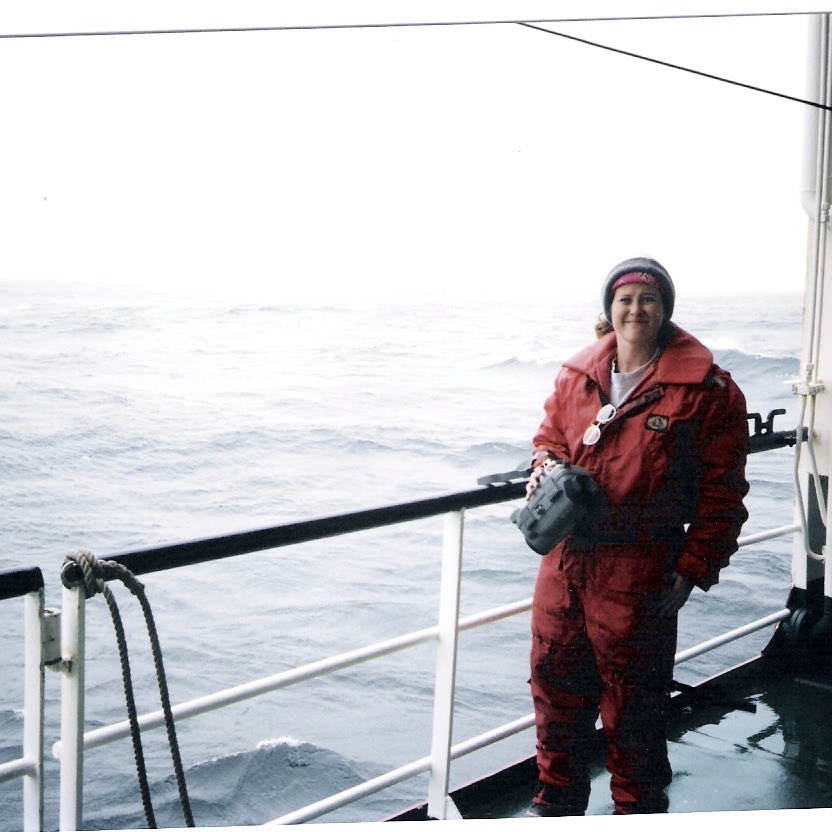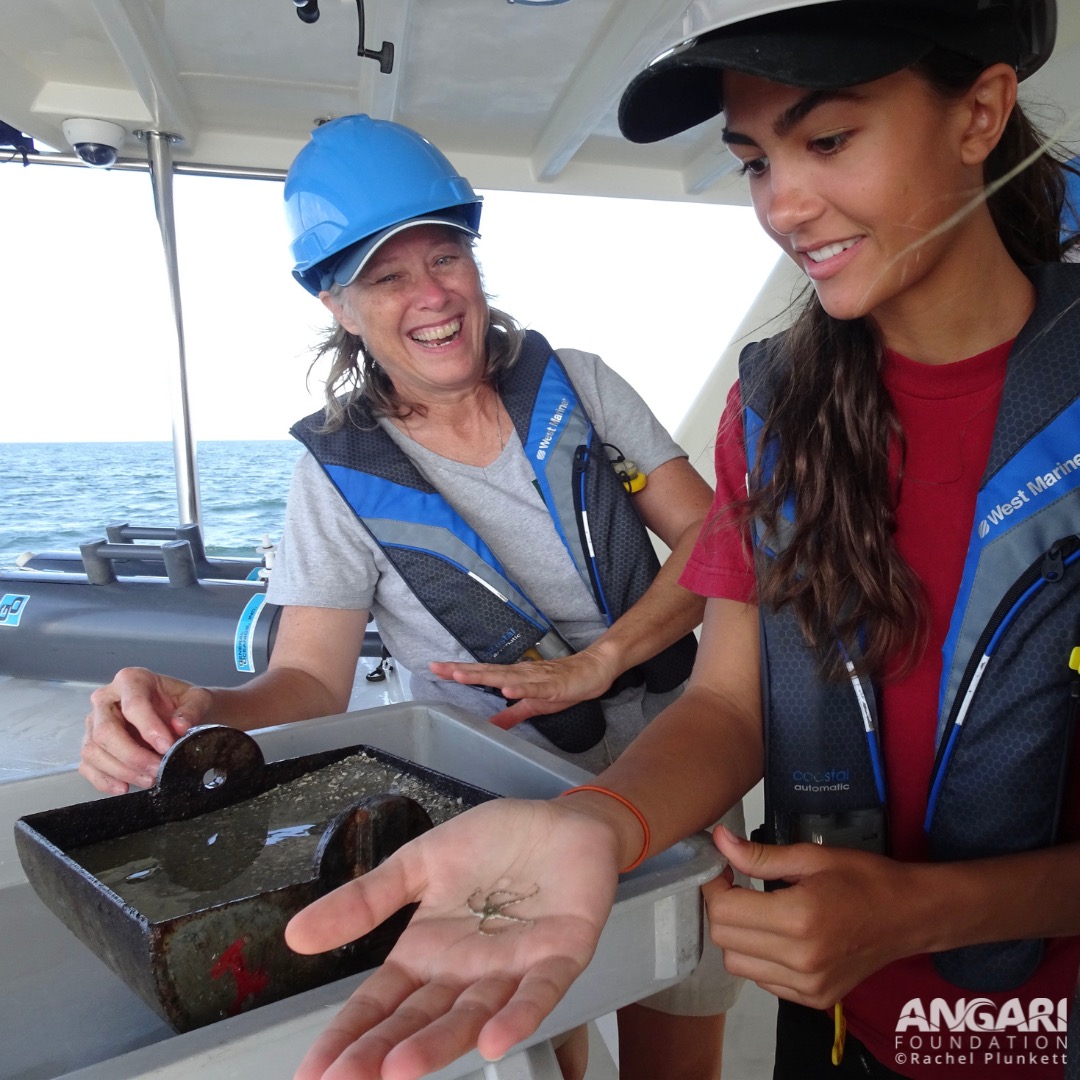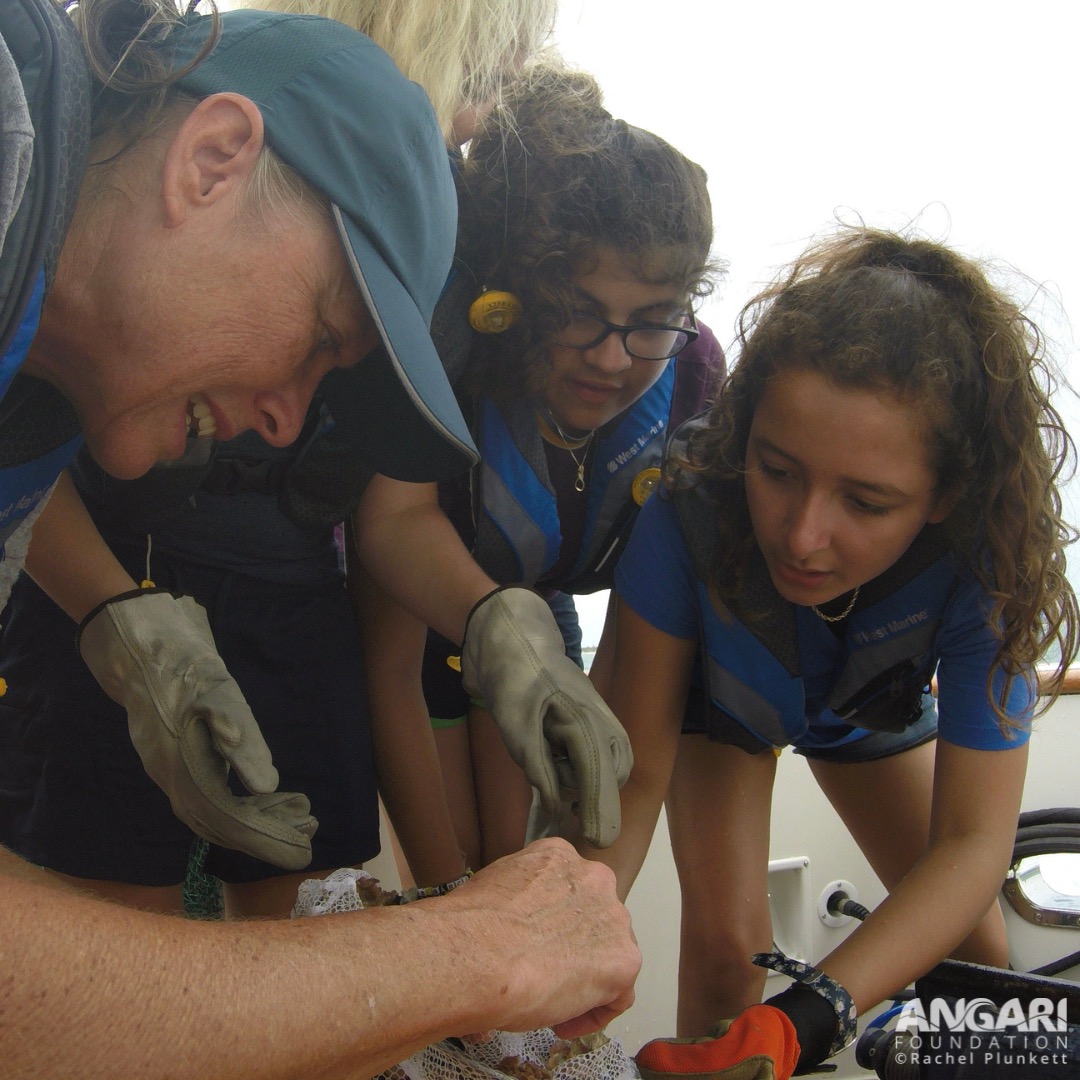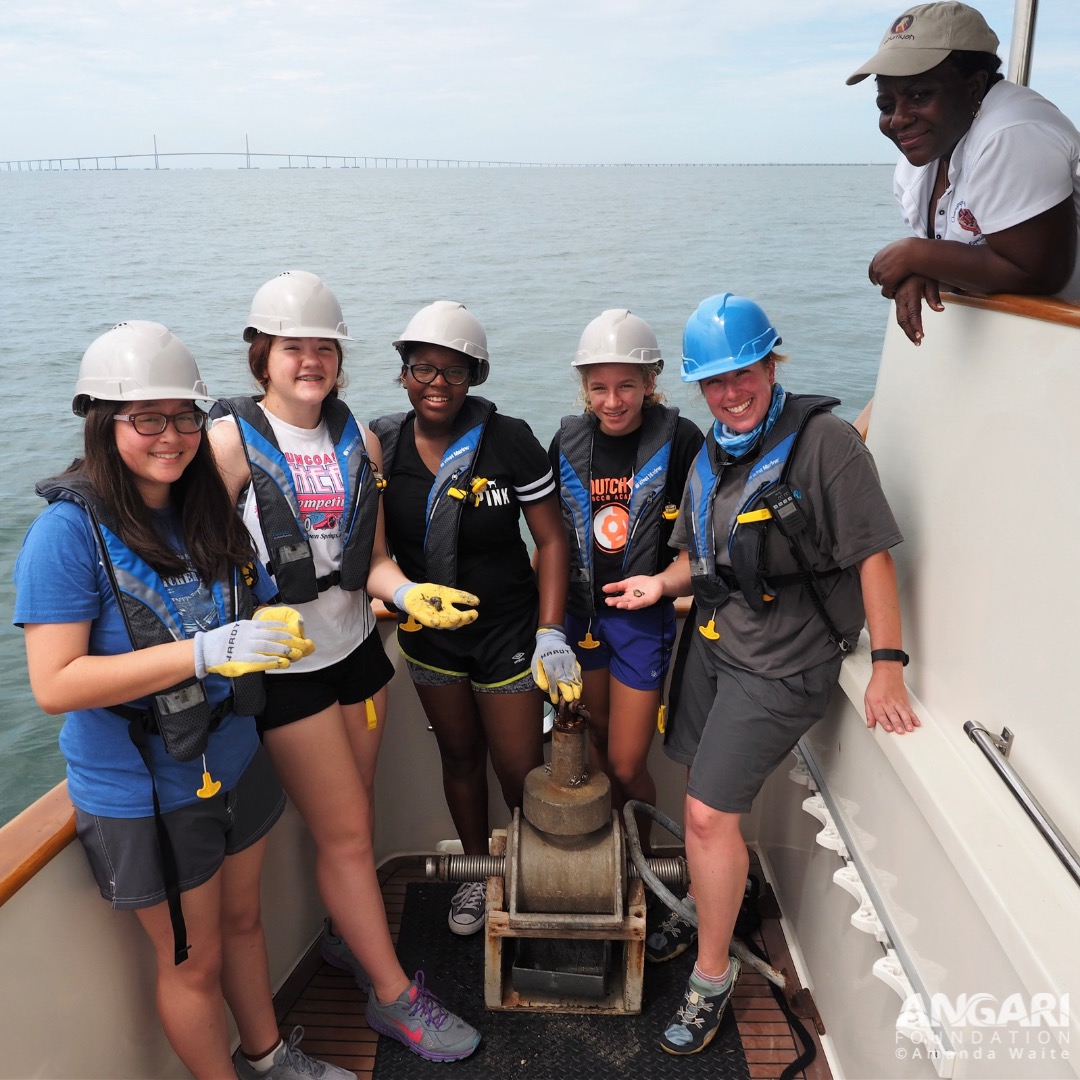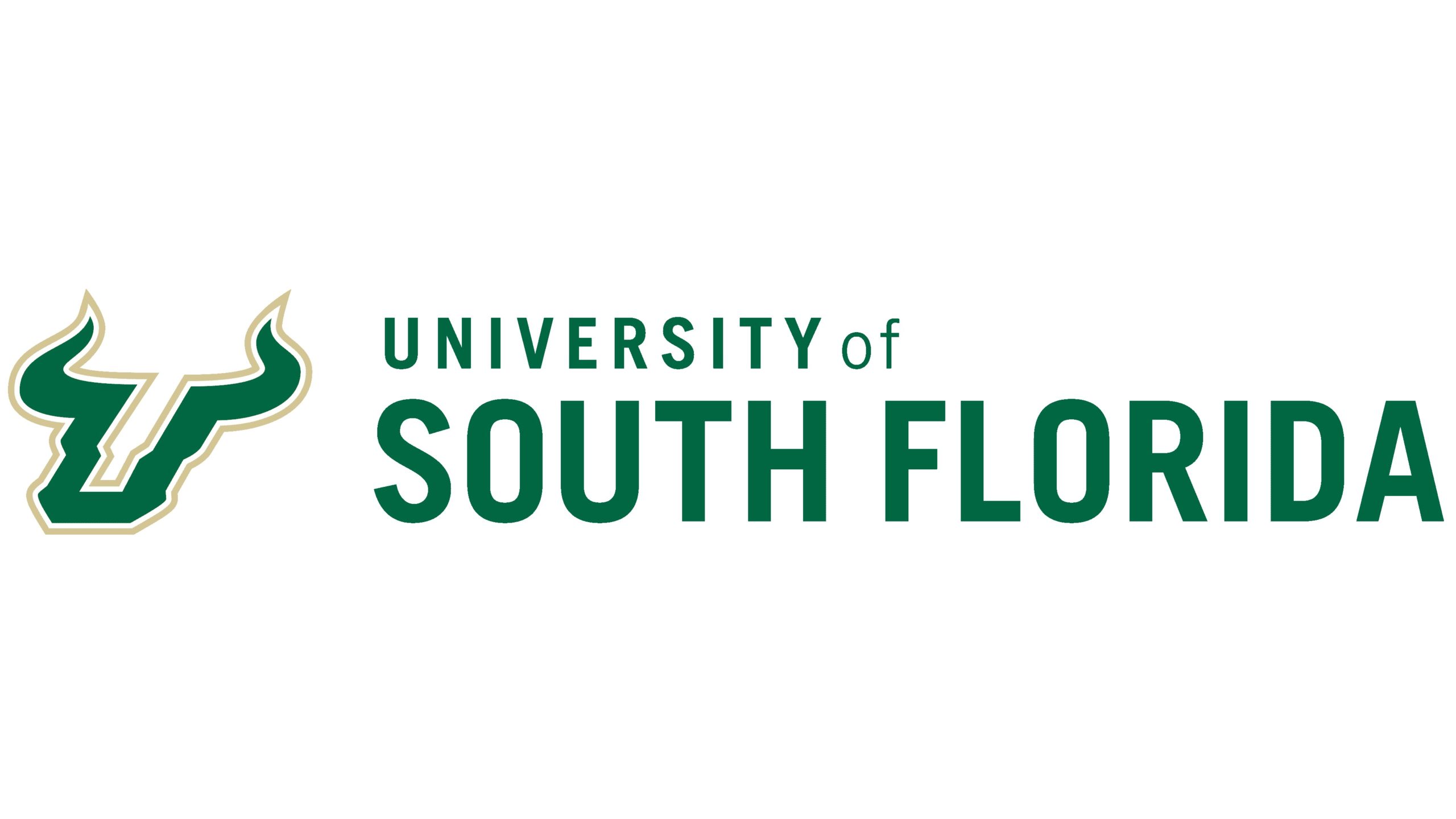

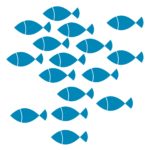
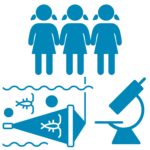
Meet Teresa Greely
Ahoy! My research has focused on studying how fishes are adapted to live where they live in the ocean and their contribution to global carbon cycling. This work falls under the umbrella of marine ecology. My research as a science educator is exploring ocean literacy to help understand what people know about the ocean, how they feel about it, and what they would do for it. This amazing career in ocean sciences and education has taken me to many places, such as aboard an icebreaker in the Southern Ocean to study deep sea fishes, diving in submersibles for jellies, out to sea to film hydrothermal vents with the submersible Alvin and sailing aboard the R/V Joides Resolution to collect sediment cores from the ocean floor. My favorite summer job is directing the Oceanography Camp for Girls. Each workday I have the privilege of teaching and training college students, teachers, and K-12 students about the ocean, while developing future teachers, leaders, and science communicators.
2008 Ph.D. Science Education, University of South Florida
1994 M.S. Marine Science, University of South Florida
1985 B.S. Natural Sciences, New College of Florida
Get To Know Teresa
I spent my younger years growing up in Michigan – a time when I thought that the Great Lakes were the ocean! As a teen I lived in the beautiful mountains of east Tennessee. I moved to Florida for college and never left, except for one year in California.
Hmmm, tough one. In the deep sea the lanternfishes, or myctophids, are a favorite because they were the first deep sea fishes that I met during my first research cruise in the Gulf of Mexico. I was so intrigued with their light organs for bioluminescence that they became the subject of my Master’s degree research. In coastal waters the common snook, Centropomus undecimalis, is a favorite because it is one of the most beautiful and graceful fish to watch, and it is wonderfully adapted to feed by inhaling its prey. I also spent many days feeding snook by hand during my job as a fisheries biologist.
For fun I listen to music, study the Bible, cycle, hike, volunteer and spend time as much time as possible with family and friends.
During the academic year I am likely teaching college classes, leading outdoor, coastal field trips or mentoring students. During the summer I am leading the Oceanography Camp for Girls STEM-ocean program for teen girls or teaching a study abroad class in a tropical setting for college students.
As a kid, I was so curious and loved watching the Undersea World of Jacques Cousteau. My parents told me that at the age of 8, I knew that I wanted to be a marine biologist when I grew up. The dream never changed. My path was typical in that I started college to pursue a biology degree. What was perhaps less typical is that I took about 10 years between each graduate degree I later earned. My first job was with the Florida Marine Research Institute (FMRI). It was terrific because I worked on the water nearly every day. My job was sampling juvenile fishes in Florida’s estuaries to establish the juvenile fisheries independent monitoring program. I returned to college almost 10 years later to complete a Master’s degree in Marine Science studying deep sea fishes. It was an exciting time of research and field work in the Gulf of Mexico, Atlantic and Southern Oceans. Adventures included long expeditions at sea, diving in submersibles, and learning something new nearly every day. I worked for about 10 more years, then returned to college for a PhD. This time I was studying how to teach science, not how to do science. I learned entirely new science-related concepts while completing a degree in Science Education. My research studies helped establish baseline data about the ocean literacy of teens and college students. I continued working for the USF College of Marine Science, equipped this time as a better communicator, instructor and program leader. My career path has shifted from an ocean-based field scientist to an ocean science educator for all learners from “K to gray.”
My first Oceanography Camp for Girls (OCG) was in the summer of 1992 when I was a graduate student at USF’s College of Marine Science. After my first summer as a science mentor for OCG, I was hooked! OCG was my first teaching gig and I was petrified. I did it, even though I was quite uncomfortable talking in front of people. Each summer I would grow in confidence and learned that as a scientist I have so much to pay forward to the next generation of aspiring marine scientists. I am so glad that I said yes, especially during my initial discomfort. Growing with and leading the OCG has been one of my life’s greatest privileges and joys. Because of OCG I am doing what I am doing in my career directing community engagement programs, as well as teaching college classes. Teens are terrific, and teach me so much each summer about what really matters – people and relationships.
Science is fun, curious and full of questions. How we talk and teach about science should also be fun, engaging and a quest to find and share the answers nature shares. We have so many things to explore and learn about the ocean. The adventure and exploration should be a public pursuit accessible to everyone, inclusive of our shared voices and values across every island and continent.
Communication is the thread that connects people relationally across our interests, cultures and oceans. The area of science communication is so important and can be a wonderful tool for encouraging everyone to learn something about the ocean. What we know about how things work in nature and how we know it are wonderful and significant stories to tell. These are universal stories – not just for scientists to know and appreciate. Quality science should be accessible and spoken in a language understandable to the public. It is also important to see who scientists are as people doing their jobs, asking questions and listening for answers. Mid-cycle in my research career, the reality set in that most of what I was doing would benefit a very small percentage of humanity and only those who happened to understood the scientific language I was speaking. During this career crossroad, I began and continue to teach courses for non-science majors in hopes of generating excitement and life-long interest in learning about the ocean.
Ocean literacy is “an understanding of the ocean’s influence on you and your influence on the ocean.” Better understanding of the ocean is not just a science thing; it is a valuable treasure for everyone to find and explore. Public opinion and literacy surveys reveal each year that there is a significant lack of knowledge about how changes taking place in the oceans will impact businesses, communities and society. It is quite exciting that UNESCO has dedicated 2021-2030 as the Ocean Decade. This is a wonderful time to embrace and advance ocean literacy. It is my hope that during this ocean decade countless societies of people will grow in valuing and understanding our amazing one ocean.
Every year is filled with new adventures, challenges and opportunities to keep learning from our participants and growing our programs. The most difficult times are sitting in front of a computer too many days in a row. Sometimes it can be challenging finding funding to support our programs. Far more days are rewarding, especially teaching and learning outdoors! Some of my favorite days include:
- young scholars experiencing the ocean ‘up close and personal’ for the first time and leaving with wonderful stories of their adventure and bravery
- teen girls committing three weeks of their summer to be oceanographers, making new friends and discovering how capable they are to accomplish anything
- college students taking a required science class, embracing something completely different from their career paths to learn about the ocean
- mentoring graduate students who will be the extraordinary leaders who lead the next generation of education and outreach programs
One of the best ways to learn is by doing. Say yes to the opportunities that will come your way, often unexpectedly, even if you feel unsure. Be prepared, study hard to build a solid foundation to continually add new concepts. Learn to like math and to ask good questions. Keep a positive outlook and personality. Bloom where you are planted even if temporarily and find joy in your unique journey.
Interview conducted in March 2023

